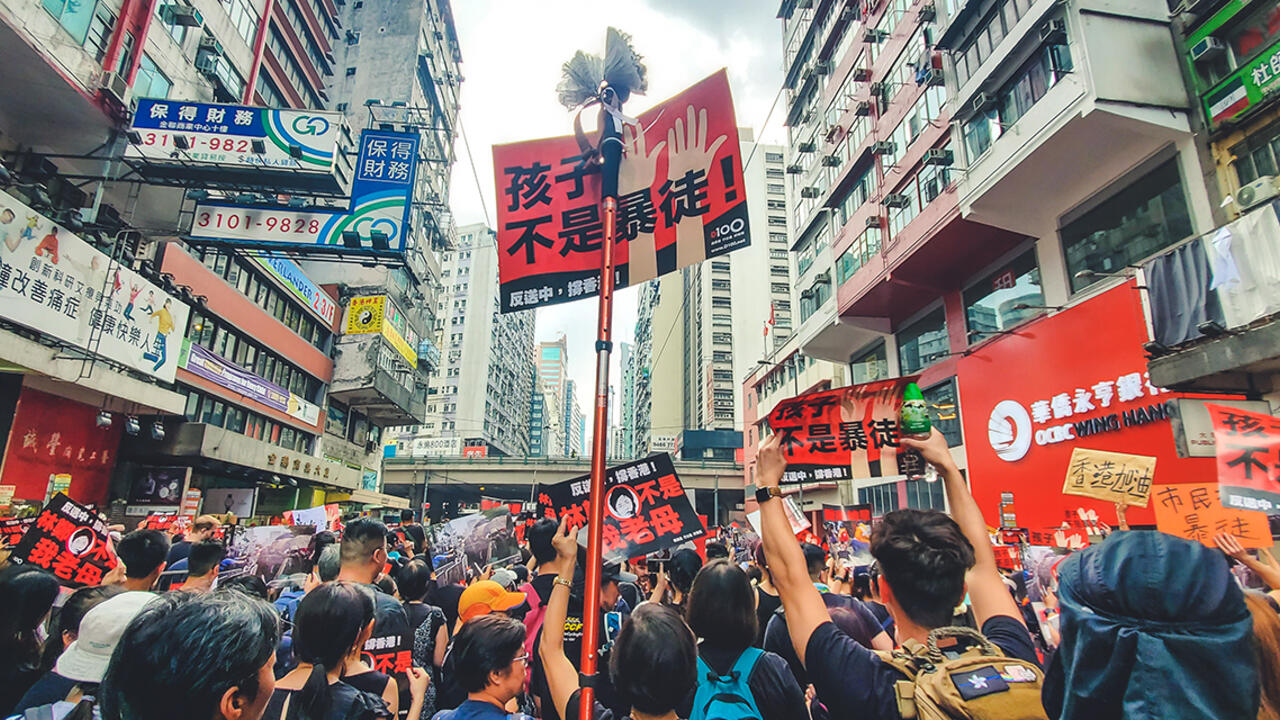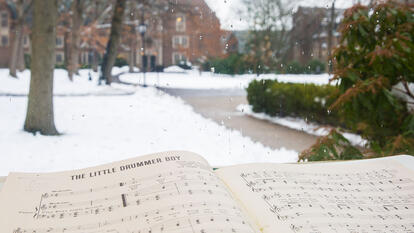Wellesley Expert on Contemporary China Discusses Hong Kong Demonstrations

The political protests currently roiling Hong Kong started because the territory’s Legislative Council planned to pass a law allowing extradition from Hong Kong to mainland China; they have since grown to reflect wider demands for democratic reform. The Daily Shot spoke with William Joseph, a professor of political science at Wellesley who studies contemporary Chinese politics and ideology, about the protests, China and the international community’s reaction to them, and what might happen next.
What set off these protests?
The prospect of Hong Kong citizens and others being extradited to China and subject to its nontransparent, Communist Party-controlled legal system was the spark that ignited the protests in June. There was concern that the extradition law would be used by China to apprehend and punish political dissidents under the pretext that they had violated national security or threatened public order. But this particular issue is only the latest in a long line of what are seen by many as steps by the People’s Republic of China (PRC) to assert more control over the Hong Kong Special Administration Region (HKSAR), which, according to the terms of the agreement by which Hong Kong returned to Chinese sovereignty in 1997, is supposed to enjoy a high degree of autonomy in all matters except defense and foreign policy until 2047. In fact, today’s protesters are partly motivated by their fears about what will happen after the PRC takes full control of Hong Kong in 28 years.
Are divisions emerging within Hong Kong as a result of these protests?
Hong Kong is deeply divided been those who identify as Hong Kongers first and Chinese second and those who put their Chinese identity first. The vast majority of protesters are young Hong Kongers, whereas Chinese identifiers tend to support the Hong Kong and PRC governments. If political science teaches us anything about such situations, it is that identity conflicts are very difficult to resolve nonviolently since neither side is willing to make major concessions. Whatever the outcome of the current crisis, identity politics will continue to play a major role in the HKSAR in the countdown to 2047.
China has been reluctant to get too involved with the protests so far. Why?
Initially, China remained silent on the protests, hoping they would run their course or be successfully addressed by the Hong Kong government. But as the demonstrations not only continued but also grew exponentially in size and began to disrupt life in Hong Kong, the PRC has weighed in with escalating rhetoric, including thinly veiled threats about intervention and unfounded accusations that foreign powers—especially the United States and Britain—have been behind what they call “riots” and even “terrorist acts.” The PRC has carried out crowd-control training exercises by the paramilitary People’s Armed Police (PAP) in Shenzhen, which is just across the border from the HKSAR. There is also a 5,000-strong combat-ready garrison of China’s People’s Liberation Army (PLA) stationed in Hong Kong. They keep a very low profile, but are legally allowed to intervene to maintain order at the request of the Hong Kong government, which is subservient to Beijing.
How has the international community responded to these protests?
The international response has been quite muted so far. Or “holding its breath” might be a better way to put it. U.S. Secretary of State Mike Pompeo recently said that China should respect the rights of the Hong Kong protestors “to speak out on behalf of their own freedom, their own liberty” and that any violent intervention by the PRC would make a “trade deal” all that much harder to reach. But the U.S. and other democracies have very little leverage over China.
How do you see this situation developing?
Predicting anything about Chinese politics or foreign policy is a fool’s errand. Almost all China watchers—including me—did not think that the Chinese party-state would use massive force to end the Tiananmen demonstrations in the spring of 1989 in light of the extensive Western media presence in Beijing at the time and the progress that the PRC had made in economic reform by then. But we were tragically wrong.
I think there are prospects for a local settlement to defuse the crisis if the HK government (and the PRC) give some ground by, for example, withdrawing rather than just tabling the proposed extradition law and appointing an independent commission to investigate police violence. The protestors would also have to tone down their more radical demands, such as for truly democratic elections for the HKSAR chief executive and the Legislative Council, both of which are currently chosen by an electoral process that heavily favors pro-Beijing candidates.
I also think that the potential for a military intervention by the China should not be dismissed. The PRC will celebrate the 70th anniversary of its 1949 founding on October 1. It clearly would not want disorder in the HKSAR to sully that hugely important commemoration. Among the main themes of the administration of China’s leader, Xi Jinping, has been to reinforce the power of the Chinese Communist Party in the PRC and to take a strong stand on defending Chinese sovereignty, which extends to Hong Kong.
Photo: Roughly two million people fill the streets of Hong Kong, protesting the extradition bill.



